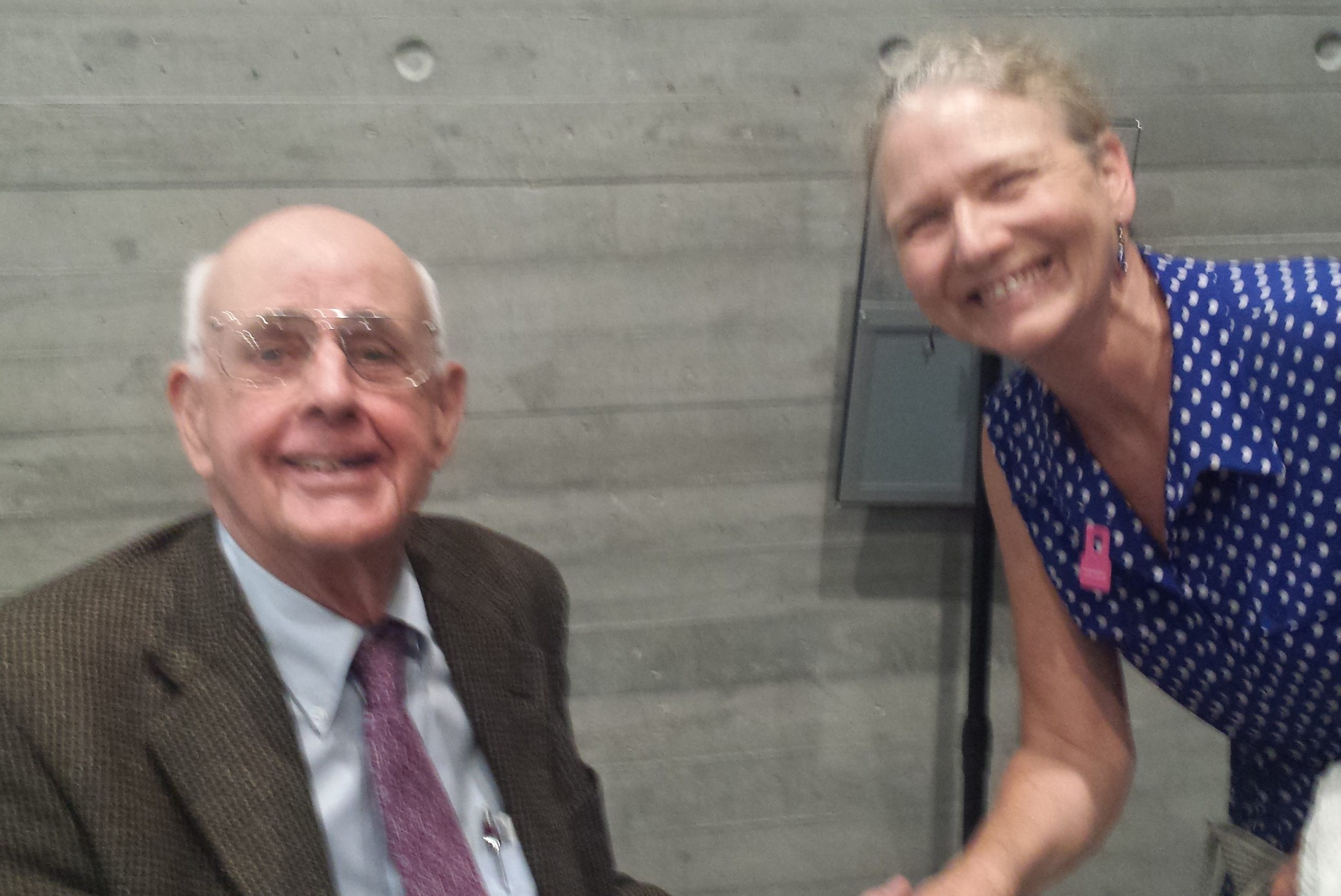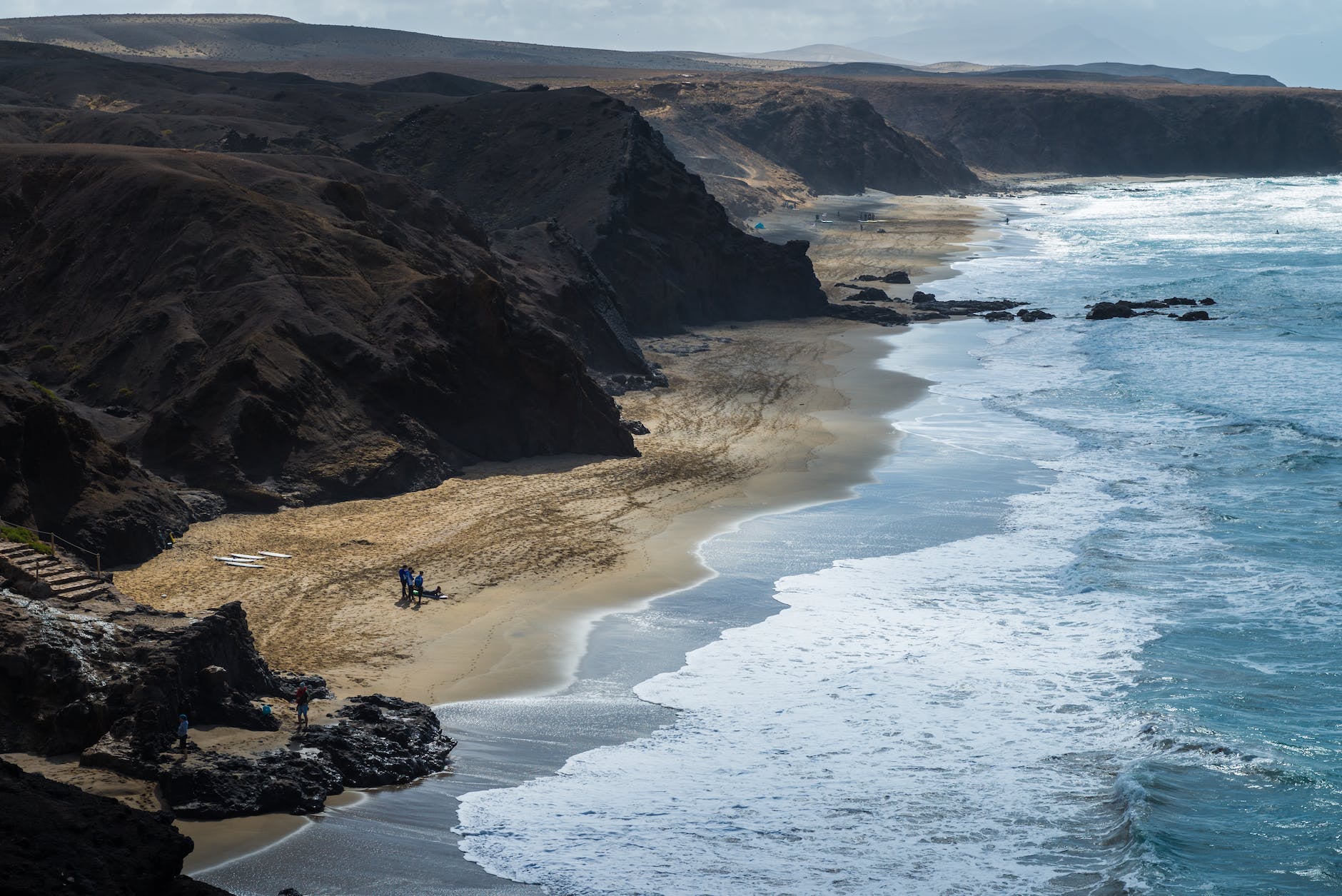Our Collective Hearts: How writers inspire one another to continue writing about the things that matter.
The issue here is to speak up about our moral obligation to be good stewards of the environment.
Rachel Carson’s world-changing ideas are not only not going out of style: they continue to multiply, spreading like the seeds of a dandelion through the pens of other writers who are inspired by what she wrote.
Emergence Magazine recently featured an essay, “Convergent Imagining,” by J. Drew Lanham, about an imaginary meeting of minds between Rachel Carson and Dr. Martin Luther King, Jr. What if they had met in 1964? Perhaps our world would be different today.
In his new book, Silent Spring Revolution, author and historian Douglas Brinkley revives the legacy of Carson for a new generation. With extensive research, he tracks the environmental movements in the United States throughout a century, claiming that Rachel Carson’s book, Silent Spring, was so successful (and still is) because of its beautiful literary style. Click here to watch the Amanpour and Company interview of Brinkley.
I receive a weekly e-newsletter, The Marginalian, edited by Maria Popova. Her most recent issue featured M.C. Escher, whose life and work were influenced by the work of Rachel Carson. I paraphrase some of what Popova wrote about M.C. Escher, but my focus is on Carson’s influence.
According to Popova’s research, Carson’s solitary work of writing about the environmental crisis, first in The Sea Around Us and later, in Silent Spring, inspired M.C. Escher to follow his own instincts in creating a completely original style that many of his time did not understand. Carson wrote:
“If you write what you yourself sincerely think and feel and are interested in, you will interest other people.”
Popova observes that Rachel Carson was herself inspired by a writer before her own time, Ella Wheeler Wilcox, who wrote about women’s and political issues around the times of World Wars I and II. In a line of her poem, “Protest,” (1914), Wilcox wrote:
“To sin by silence, when we should protest, makes cowards out of men.”
So, Carson broke her own silence, about DDT and environmental calamity, by writing what interested her. Her writing was not received well at first, because, as Popova observes, Carson’s writing “was too lyrical for science and too scientific for literature.”
Did Rachel Carson invent the genre of nature writing?
Another writer, Thomas Merton, was inspired by Carson’s work. He wrote her a letter, thanking her for writing Silent Spring: “[y]our book makes it clear that there is a consistent pattern running through everything that we do, through every aspect of our culture, our thought, our economy, our whole way of life.” He called it “civilizational self-awareness.”
This civilizational self-awareness, I think, is an intellectual’s term for “collective hearts.”
I have been given permission to include some reflections on this topic by author Kyo Maclear. In her 2017 memoir, Birds Art Life, Maclear reflects that our sense of responsibility for a collective relationship to the environment can no longer remain passive, silent. Maclear writes:
What do you regret? I regret the times I have acted with too much head, or, conversely, with too much heart. I regret the times it seemed better, somehow, to hang back and not step forward…I regret the instances I have turned to others for guidance even when I already had a hunch of what to do. I regret the part of me that is deferential, that fears being sentimental. I regret I am not more propelled by impulse, nerve, instinct…
[Later, reflecting back on that scene with the baby bird]:
“Sometimes I worry about our collective hearts. I worry about the big things we may one day regret together. I worry, along with British nature writer Robert Macfarlane, that “we exist in an ongoing biodiversity crisis–but register that crisis, if at all, as an ambient hum of guilt, easily faded out.”…
Would it be deemed maudlin or diabolically unscientific to extrapolate from a fated goldfinch to the current extinction rate for birds, which according to Macfarlane “may be faster than any recorded across the 150 million years of avian evolutionary history”?
Maclear’s passage about “What do you regret?” moved me to copy it down in my journal and add something of my own:
“This passage exactly expresses my own regret: regret for listening to the voice of patriarchal authority that told me not to act when my conscience was screaming at me to do something: to rescue a baby bird, or a little boy, or a family that was in trouble.
If I can remind myself that a feeling of REGRET over something not done signifies a mistake, a missed chance to do something right, then perhaps I will have the courage to listen to myself the next time, and to ignore the voice of the dominant narrative–which, I must remind myself, is most always wrong because it is acting on its own selfish interest.”
Maclear’s reflection resonated with me, the ideas percolated and became an essay, “On Doing One Thing.” And ultimately, all of the above is why I decided to launch a project, The Untitled Life – in the hopes that, if I write about what interests me, as Rachel Carson did, it will interest other people.



